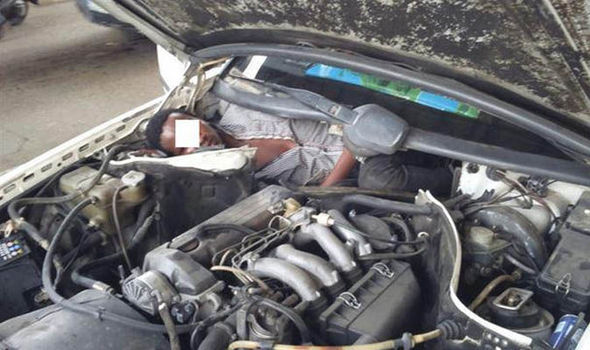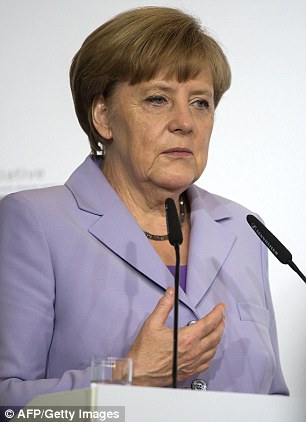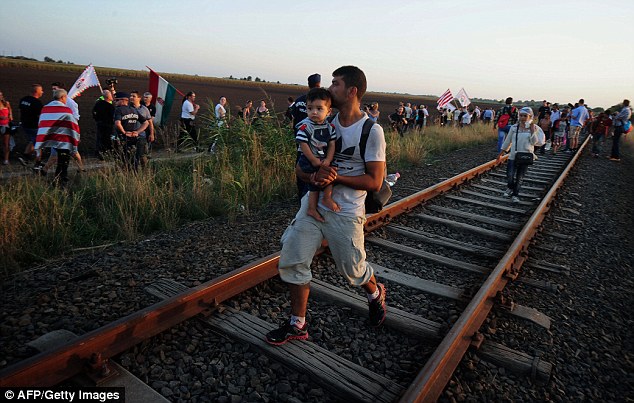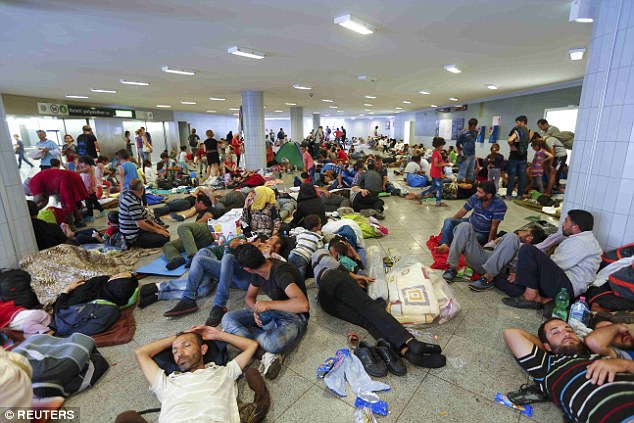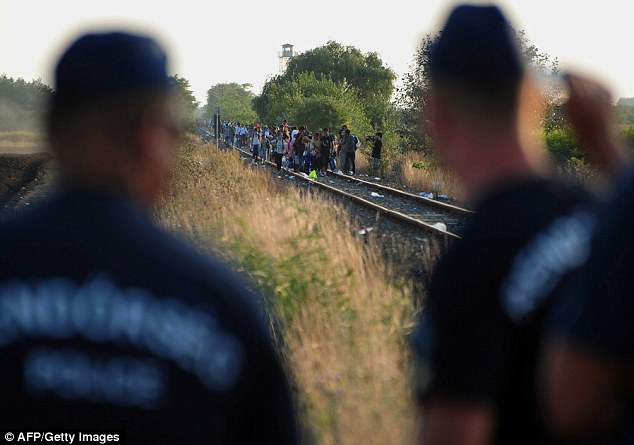If you really want to save Syrian children, save Syria
The only way to save children like Aylan Kurdi is to go to war against the psychopaths they're fleeing. Everything else is just empty noise
A Turkish border guard carries the body of a migrant child after a number of migrants died and a smaller number were reported missing after boats carrying them to the Greek island of Kos capsized near the Turkish resort of Bodrum Photo: AP

By
Julia Hartley-Brewer
03 Sep 2015
261 Comments
EU refugee crisis: latest news
The image of a three-year-old Syrian boy lying dead, washed ashore on a Turkish beach, has shocked Britain.
The sight of Aylan Kurdi’s tiny limp body was undoubtedly a powerful and distressing image that brought home to many of us the stark realities of the refugee crisis that is on Europe’s doorstep.
The photograph, plastered across most of our front pages, has prompted calls for Britain to act to save more lives and to
offer safe haven to thousands more refugees from Syria and other war-torn countries.
But why?
Refugees at the Greek/Macedonian border Photo: Getty Images
That might sound like a bizarre, even heartless, question, but it is a question we need to answer before we can understand what we really need to do.
After all, this little boy is not the first child to die as a result of the chaos and bloodshed in the Middle East. He wasn’t even the only child among the dozen Syrians who drowned yesterday after their flimsy boat collapsed as they headed from Turkey to the Greek island of Kos.
And Aylan certainly won’t be the last Syrian child to die.
More than 210,000 Syrians are now estimated to have died
since the violence in their country began in 2011, according to the the Syrian Observatory for Human Rights. That figure includes at least 10,664 children.
Yet we didn’t wring our hands over each of their deaths. Why not?
Yes, of course seeing an image of a dead child is much more immediate and emotive than simply reading about it. Out of sight is out of mind.
There have, though, been
plenty of equally horrific images of dead Syrian children in the media in recent years. We – and our politicians - have simply chosen to turn away from them.
The death on a Turkish beach is different from a death in Syria or in a refugee camp because, quite simply, Turkey is closer to home, and the little boy’s destination, Greece, is even more so.
And because we know we could have done something to prevent it.
EU refugee crisis: Desperate refugees in Calais are trying all sorts of dangerous methods to get into Britain
The difference is not that now we have at long last seen the desperate plight of Syrian refugees for ourselves, so it has finally become real, but that now we have no choice but to admit it is real and coming closer every day.
In truth, if we are honest with ourselves, our horror at this image actually says less about our concern for this poor little boy and more about our concern for our own guilty consciences.
This, after all, is not the first time a harrowing image has prompted British people to demand our politicians act to save lives.
When Michael Buerk made his BBC news report about the plight of starving Ethiopians in 1984, it wasn’t the sight of skeletal African children – which we had been seeing for years - that suddenly made Britain sit up and take notice and want to do something about it. It was something quite different.
It was the sight of a white western nurse whose job it was, with only limited food stocks, to effectively “play God” and choose which children to feed, and which to leave to starve to death, that haunted us. That image prompted Band Aid, Live Aid and, at long last, a concerted western effort to save millions of lives.
Birhan Weldu became the face of the Live Aid concerts. She survived
So what do we need to do this time, to deal with this crisis? Unfortunately, this one is going to be rather harder to solve.
It is all very well wringing our hands and
tweeting out hashtags about welcoming refugees, and maybe even sending some money to a relief charity, but that won’t deliver a safe and happy future for the many millions of Syrians – or the many millions more Iraqis, Afghans, Eritreans and others who are also fleeing violence in their home countries.
Even the practical suggestions like offering Syrian orphans safe passage will be just a drop in the ocean. Indeed, even if David Cameron agreed to
allow an extra 10,000 or even 100,000 Syrian refuges to come to make their home in Britain, it would still not touch the sides of this epic human disaster.
Offering safe haven to a few thousand more refugees may well be a welcome break for those lucky enough to win that particular lottery, but what about the other millions who are in just as much need? What do we plan to do about them?
As much as our hearts may break when we look at the image of a drowned little boy, if we are not prepared to do anything about the reasons why his family felt that getting on that rickety boat to Greece was worth the risk, then it counts for nothing.
This refugee crisis is not going to be resolved until Britain and other western nations wake up and see the real picture: that we need to instigate military action to oust the psychopathic regimes and Islamic extremists who are forcing people like three-year-old Aylan and his family to flee their homes in their millions.
It will cost money and it will cost lives. What we have to decide now is whether we are willing to pay that high a price so that we don’t have to look at another photograph of a dead child washed up on a beach.
Everything else, I’m afraid, is just bleeding heart sentimentality.
If you really want to save Syrian children, save Syria - Telegraph
STEPHEN GLOVER: Before Germany lectures us about refugees, perhaps it should reflect on its own past
By
Stephen Glover for the Daily Mail
3 September 2015
Daily Mail
According to a spokesperson for Angela Merkel (pictured), Britain is jeopardising its relations with Germany by refusing to take more refugees
Doubtless it is small-minded of me, but when the German government starts lecturing the British Government about proper behaviour, my immediate reaction is not always very positive. This is perhaps particularly the case when those lectures are on the subject of immigration.
According to Stephan Mayer, a right-of-centre spokesman on home affairs for Angela Merkel, Britain is jeopardising its relations with Germany by refusing to take in more asylum-seekers. The suggestion is that we are refusing to pull our weight, and have an ‘out-of-the-club’ mentality.
Many German politicians evidently take a similar view of our supposed meanness of spirit, as do some German newspapers. Bild, the country’s biggest-selling title, has published a photograph of David Cameron under the headline:
‘The slackers of Europe — they take far fewer refugees than they could.’
Persecution
Do they have a point? Only a very tiny one. Historically, Britain has had a much more open-minded attitude towards genuine refugees than Germany. And while it is true that Germany is now shouldering by far the biggest burden, do not assume its motivations are entirely selfless.
We needn’t dwell too long on the Huguenots (some 50,000 Protestant refugees escaping from Catholic France in the late 17th century) or the Jews (about 80,000 fleeing from Hitler’s Germany in the 1930s) to make the point that this country has traditionally had a heart, though it’s certainly true we wrongly turned many Jews away.
Nor need we spend a great deal of time reflecting on the 120,000 or so Jews who escaped pogroms and persecution in Eastern Europe at the end of the 19th century and the beginning of the 20th, and found a home in Britain.
In modern times, Germany has not exactly covered itself in glory so far as immigrants are concerned. During the 1960s and 1970s — long before re-unification — West Germany sucked in hundreds of thousands of so-called Gastarbeiter from countries such as Turkey and Yugoslavia to supply labour for its booming economy.
Gastarbeiter means ‘guest worker’ — and that is exactly what they remained. They were not given citizenship for many years, if at all, and only limited attempts were made to integrate these foreigners.
Britain, by contrast, conferred full citizenship on immigrants from former colonies during the same period, and at least made some efforts to integrate them. In 1972 some 30,000 Ugandan Asians were taken in by Britain virtually overnight after they had been expelled by Idi Amin.
So I humbly submit that, before they climb into their pulpits to deliver a withering dressing-down, German politicians might care to reflect that Britain has a pretty good record in welcoming immigrants, including refugees, while Germany does not obviously have much to crow about.
Moreover, Germany’s readiness to accept a greater number of asylum-seekers — I here draw a distinction between these people and migrants in general — is of very recent vintage. During the first decade of this century, Britain, with its smaller population, admitted slightly more asylum seekers.
German newspaper Bild published a photograph of David Cameron with a headline labelling Britain the 'slackers of Europe'
Now, of course, the tables have been suddenly turned inasmuch as Germany has said it will accept 800,000 asylum-seekers and refugees this year, while Britain is reluctant to take more than a handful. But this decision must be seen in the context of the two countries’ different experiences of mass immigration.
Broadly speaking, Germany and Britain have similar proportions of foreign-born people — 12.2 per cent and 12.5 per cent respectively.
But in recent years Germany has been actively encouraging immigrants. Britain, while absorbing similar inflows, has been more ambivalent about the process.
The main reason is that Germany has a declining birth rate and a falling population. This stood at 82.21 million in 2000; despite high levels of immigration, it had fallen to 80.76 million by 2014. During the same period, Britain’s population soared from 58.89 million to 64.3 million. On present trends, the population of this country will exceed that of Germany by the middle of the century.
This explains, in large measure, why Germany seems almost eager to welcome new migrants, while often not troubling too much as to whether they are asylum-seekers or economic migrants. The German economy needs to boost its working-age population.
Britain, on the other hand, though certainly having an appetite for cheap foreign labour, is acutely aware of the effects on housing and public services, such as schools and hospitals, of a rapidly rising population largely fuelled by immigration. Only last week we learnt that net immigration to this country in the 12 months to March was an all-time record of 330,000.
Only last week was it revealed that net immigration to Britain in the 12 months to March was an all-time record of 330,000. Pictured, Syrian refugees waiting to cross the Macedonian/Greek border
That is why the Government is so reluctant to accept large numbers of asylum-seekers. The needs of the two countries are very different, and finger-wagging German politicians should show more awareness of that fact.
Desperate
As it happens, I am in instinctive sympathy with the suggestion by Yvette Cooper, surely the most plausible of Labour’s would-be leaders, that the British Government should agree to accept 10,000 bona fide refugees, if someone would only take the time and trouble to weed them out from economic migrants. It seems the decent and humane thing to do — and very much in our tradition of helping those in desperate straits.
But can a country which is already taking in more immigrants than is manageable — so much so that immigration now ranks as people’s number one concern, above even the economy — add to numbers which have already run far beyond the Government’s intentions?
Here, of course, our German friends miss another point — which is that European Union rules about the free movement of labour mean we have lost control of our borders — and as a result our moral choices have become clouded.
If the British people were given a choice, would they rather offer a home to genuine Syrian refugees fleeing a terrible war, or to Romanian and Bulgarian migrants (50,000 of them in the year to March) drawn here by the prospect of higher wages and, in some cases, generous welfare payments?
Browbeating
My vote would be strongly with the refugees. The trouble is that too many years of uncontrolled immigration — and the inability of politicians of all parties to curb it — have disenchanted many people, and left them anxious about migrants of every shape and size.
Migrants in Hungary walk along a railway while crossing the Serbian border near Roszke village
In truth, the German politicians who lecture David Cameron are really browbeating the British people, for there can be little doubt that in his reluctance to accept more asylum-seekers, the Prime Minister is reflecting the fears of the majority of ordinary voters.
But I don’t believe the British are mean-spirited or xenophobic or racist. Most of them just feel there has been too much immigration, and these sceptics include many recent immigrants and their descendants.
German politicians are trying to place themselves on the moral high ground, and to shame us. I’ve argued that in view of Germany’s recent history they might be a little more cautious about delivering moral homilies, and that their apparent generosity towards refugees is at least in part driven by economic self-interest.
Nor do I think there is any need for us to lapse into self-loathing. We’ve provided a safe haven for many thousands of refugees over the years, and I’m sure we will do so again. Looking across the Channel, I’d say we had less cause than most to hang our heads in shame.
The truth about German claims and the real numbers Britain takes: JAMES SLACK'S analysis of the migrant crisis
By
James Slack for the Daily Mail
3 September 2015
Daily Mail
In Whitehall, there is deep irritation at the attempt by Germany to present Britain as a country which does not take its fair share of asylum seekers.
In the 2000s, Britain, which has a smaller population, consistently processed more claims than Germany – including 103,081 in 2002 alone.
Indeed, there were so many applications that the system run by the last
Labour Government almost collapsed under the strain.
Around 3,000 migrants are currently waiting at Keleti station in Budapest with many camping outside the main entrance after being told they could not board trains to Germany without valid documents
The migrants have taken cover in the underground passage near to the station as they await their fate
Between 2006 and 2010, despite numbers in the UK beginning to fall, we still accepted almost 10,000 more claimants over the five-year period than the German authorities.
It’s also a fact that numbers in the UK are again beginning to rise. Some 32,344 adults and their dependants applied in 2014, the highest annual number since 2004.
In the first quarter of 2015, the figure was 7,435.
There is also some scepticism inside Whitehall over Germany’s claim that it will take 800,000 asylum seekers this year.
In the first three months, it received 83,130 applications and, even with the scale of the current crisis, the numbers arriving would need to increase dramatically.
Officials also point out that, while Germany seeks to focus attention on Syrian refugees, they have been making up only around a fifth of claims.
Syrian migrants climb down a steep embankment to a railroad track that will lead them to a crossing on the Greek-Macedonian border
Officers look on as a group of migrants, including children, women and families, arrive in Roszke village, southern Hungary
Historically, Germany has received more asylum seekers from Kosovo, Albania and Serbia.
Much of the criticism of the Home Office centres on the so-called ‘vulnerable persons relocation scheme’, which critics point out has given refugee status to only 187 people.
But officials point out this is a specific route to the UK that prioritises victims of sexual violence and torture, the elderly and disabled and allows them to apply from overseas.
To ask the public to accept tens of thousands of refugees on top of this – at a time when concern about immigration has never been higher – would be a very difficult ‘sell’ indeed for David Cameron
Syrians continue to be able to claim asylum in the normal way after reaching the UK and, since 2011, around 5,000 claims have been approved, including 1,000 last year.
Very few genuine Syrians (people from other countries increasingly claim to be from Syria to boost their chances of success, having destroyed their papers), are turned down.
Nobody disputes that, currently, Germany is accepting larger numbers of applications. But, crucially, the political situation in the two countries could hardly be more different.
As Migrationwatch chairman Lord Green of Deddington argues, based on last year’s rate of 330,000 net migration, our total population would grow by three million every five years.
To ask the public to accept tens of thousands of refugees on top of this – at a time when concern about immigration has never been higher – would be a very difficult ‘sell’ indeed for David Cameron.
In Germany, by contrast, the low birth rate means that its population would fall by 25 per cent by mid-century if it had no net migration.
Within the UK, England is also nearly twice as crowded as Germany and has more migrants per population.
According to a report published by the House of Commons library yesterday, 12.5 per cent of the population was born overseas. The figure for Germany is 12.2 per cent.





